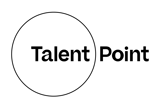The perception of wellbeing in the workplace has shifted drastically over the last five years. Consequently, the role of the People Executive has adapted to cater to the expectation of pastoral care of all employees, but what does this look like in practice?
Mental health; unchartered territory.
Predating the global pandemic, wellbeing in the workplace was considered in a very different way. The emphasis leant toward physical wellbeing (think companies extending lunch hours for gym goers, instating office ping pong tables and fruit bowls, the rise of the stand-up desk!). Mental health, on the other hand, was still very much unchartered territory for many businesses.
This was highlighted in an article published in 2019 by the Harvard Business Review, citing that 60% of employees had not spoken to anyone at work about their mental health. Fast forward to 2023, after a tempestuous few years subjecting people all over the world to immense uncertainty, loneliness, and financial crisis, businesses have been compelled to pay attention to the mental wellbeing of their workforce like never before.
There have been many positive changes, notably increased visibility for mental health issues in the workplace in an attempt to destigmatise it. Huge players like Barclays and Microsoft have initiatives that encourage leaders and employees to share their own mental health stories, and companies all over the world have enlisted external help with partnerships from financial planning clinics to counselling apps. Wellbeing is now its own specialist CIPD module, there is no doubt that People Executives face immense pressure to get it right with very little room for error in this post-covid world.
Enter Gen Z.
Given the turbulence a substantial portion of this generation would have experienced upon entering the workforce amidst furloughs and redundancies, it’s no surprise that they are asking for a custodial level of care when it comes to wellbeing. Gen Z are the most at risk to disengagement and attrition due to mental wellbeing factors, and their expectations go beyond the counselling and wellbeing apps that around 57% of businesses have introduced, according to CBI.
They are looking for transparency and openness in communication, connection, and purpose, which are things that derive from a company’s culture. This generational shift has caused businesses to re-evaluate the way they prioritise wellbeing and, along with CEOs, the People leaders play a hugely critical role as culture setters. People leaders are expected to create a community-led culture, where (junior) staff feel that they can lean on their peers which can often be challenging in a hybrid world. They also need to facilitate a culture of openness and transparency, especially when it comes to career development, progression plans and pathways. This generation of employees needs as much clarity and direction as possible to feel secure and content in their company.
Blurred Boundaries.
Undoubtedly, the shifted perception and acknowledgement of mental health has benefited the workforce, meanwhile really pushing the limits of People Leaders. What has come to light now more than ever as remote working has blurred the boundaries of work and home life, is that every wellbeing case is unique and there isn’t really a one size fits all policy. Whether it’s a Gen Z grad concerned about job security or a Gen X Executive who is struggling to balance work with care for an elderly parent, People Executives and Leaders must navigate the minefield of ensuring their wellbeing programmes are inclusive and that no one feels alienated.
These blurred boundaries also mean that more people are bringing their personal issues to work. People teams are often on the frontline in helping employees face highly sensitive issues, while at the same time must remain ‘in role’ and constantly be mindful of the balance between wellbeing and work performance. They must constantly be aware of when to step in when they can see someone’s mental wellbeing struggle goes beyond not wanting to work and is signalling something more serious.
There are countless of studies that link mental wellbeing in the workplace to productivity. However, People and Culture decision makers now face pressures that go beyond how well their employees are performing in their day jobs an encompass everything from financial to mental wellbeing of their workforce. The considering factors are broader than ever before and there can be a knock-on effect for the mental wellbeing of those working in the people space, leading to the question at the tip of everyone’s tongues; “is it sustainable?”.
Futurist, the network for senior HR and People leaders within Private Equity and Venture Capital-backed businesses, creates events, insights, and opportunity for connection with peers to discuss topics like this one. If you’d like to register your interest in joining, you can find out more here: https://www.talentpoint.co/futurist

